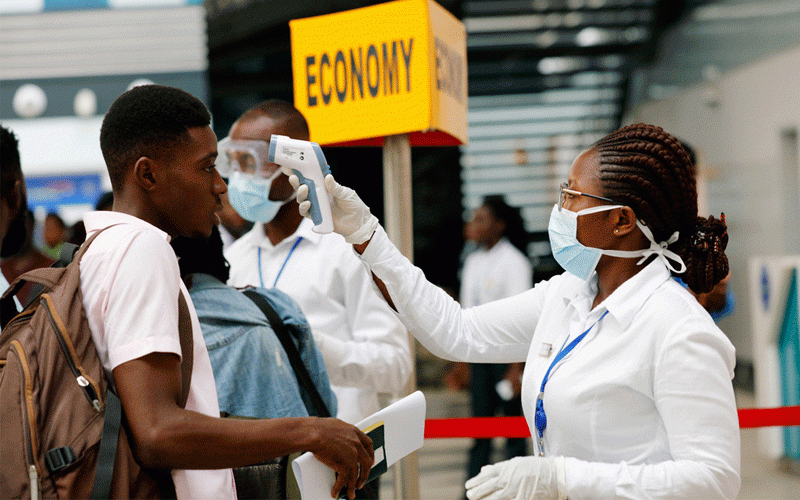Guaranteed in articles 20 and 23 of the Universal Declaration of Human Rights, freedom of association and assembly fundamentally entails the right of individuals to join or leave groups, the right of groups or individuals to meet and take collective actions in pursuing their interest.
Across Africa, a high number of violations against human rights, freedom of expression and democratic rights on the continent concern the infringement, restriction and crackdown of the activities of pressure groups, civil society organisations, opposition political parties and dissenting voices.
In 2018, the Annual Freedom of Expression Situation in Africa report recorded 208 freedom of expression violations across 30 countries. Sixty-Five incidents out of the reported cases were incidents of killings, arrests, and denial of assembly of mainly dissidents, protestors, activists and citizens.
In Guinea, for instance, over the past nine months (June 2019 – March 2020), about 42 protestors have been killed and over 200 hundred arrested and injured in a crackdown by security forces. In Nigeria, on July 22, 2019, 12 demonstrators belonging to the Islamic Movement of Nigeria were gunned down in Abuja.
At almost every point in time in the political space of Africa, there’s a government that is preventing certain groups of people from meeting or sharing their opinions; or there is also a security agency that is cracking down on a group of people for taking a legitimate civil action. And these create mistrust between many citizens/groups and governments especially when state authorities have to implement policies that will affect citizens’ rights and freedoms.
In the midst of this mistrust, there is also the Coronavirus (Covid-19) spreading across the African continent requiring governments to institute policies and make decisions that will affect citizens’ freedom of association and assembly.
According the World Health Organisation (WHO) as at March 23, 2020, Africa had recorded 1,396 cases of the Covid-19 from 43 countries with 40 deaths. The statistics further indicate an increasing rate of infection of the pandemic on the continent.
The rapidly rising rate of the Covid-19 cases has resulted in many governments on the continent taking drastic measures to contain the disease which is contracted mainly through human to human transmission.
Governments in South Africa, Ghana, Kenya, Nigeria, Burundi, Mali, Morocco, Mauritania, Rwanda, the Democratic Republic of Congo, Uganda and Gabon have issued full or partial travel bans on countries that are worst affected by the pandemic. Some of these countries have also closed their borders and subjected returning citizens and visitors to mandatory self-quarantine.
Many African countries have also instituted measures such as prevention of public gatherings, closure of some public institutions and limiting public spaces, and prevention of social activities among others—all of which are forms restrictions of citizens’ freedom of movement and assembly.
While all these measures are supposed to be well-meaning strategies by these governments to control the Covid-19 pandemic, it is not difficult for one to recognise that these are the same measures the repressive regimes on the continent employ to violate citizens’ freedom of association and assembly and to silent dissenting voices.
It is therefore reasonable for many a citizen or activist to be unsettled by these measures by the African governments, even though they are very much needed to control the Coronavirus on the continent.
Nonetheless, in the collective interest of citizens and the nations at large, there’s the need to make sacrifices and forgo some individual rights, despite the discomfort. True activism or protest must aim at ensuring protection, propriety and progress of society. In the context of these difficult times, all forms of individual or collective actions must further the objective of protecting and sustaining human lives.
In respecting citizens’ freedom of association and assembly while controlling the excesses of governments in these periods, the following recommendations are suggested to citizens, the media and governments in Africa.
Citizens
- Comply with the directives of the government and demonstrate full support to the planned activities and restrictions of movements that are being instituted. Relinquishing rights and freedoms during these desperate moments for the purposes of ensuring public safety is a civil duty of all citizens.
- While ensuring self-isolations, quarantines and limited social engagements, citizens and activists must continue holding governments accountable using other platforms including publishing articles and campaigns on social media platforms.
Governments
- Pass appropriate bills and instruments to streamline and provide clear and detailed framework on the various bans and restrictions.
- Demonstrate good faith and fair implementation of the bans and restrictions in ensuring that all citizens, bodies and agencies from all political and ideological divides obey the new policies.
- Institute measures to combat the spread of misinformation and disinformation on the Coronavirus and the new restrictive measures.
- Governments must stick to the tenets of the restrictions which are mainly to halt the spread of the virus and not pursue any parochial interest.
Media
- Stick to the key and material facts of the pandemic disease and the developments on the restrictions of movements.
- Engage with credible health and medical experts to speak on the emerging information on the disease as against politicians and other social commentators.
- Hold government officials and public office holders accountable especially on the measures instituted to control freedoms and rights of citizens.
- Always hold public interest high in reporting developments on the Coronavirus to ensure panic and fear are minimized.
